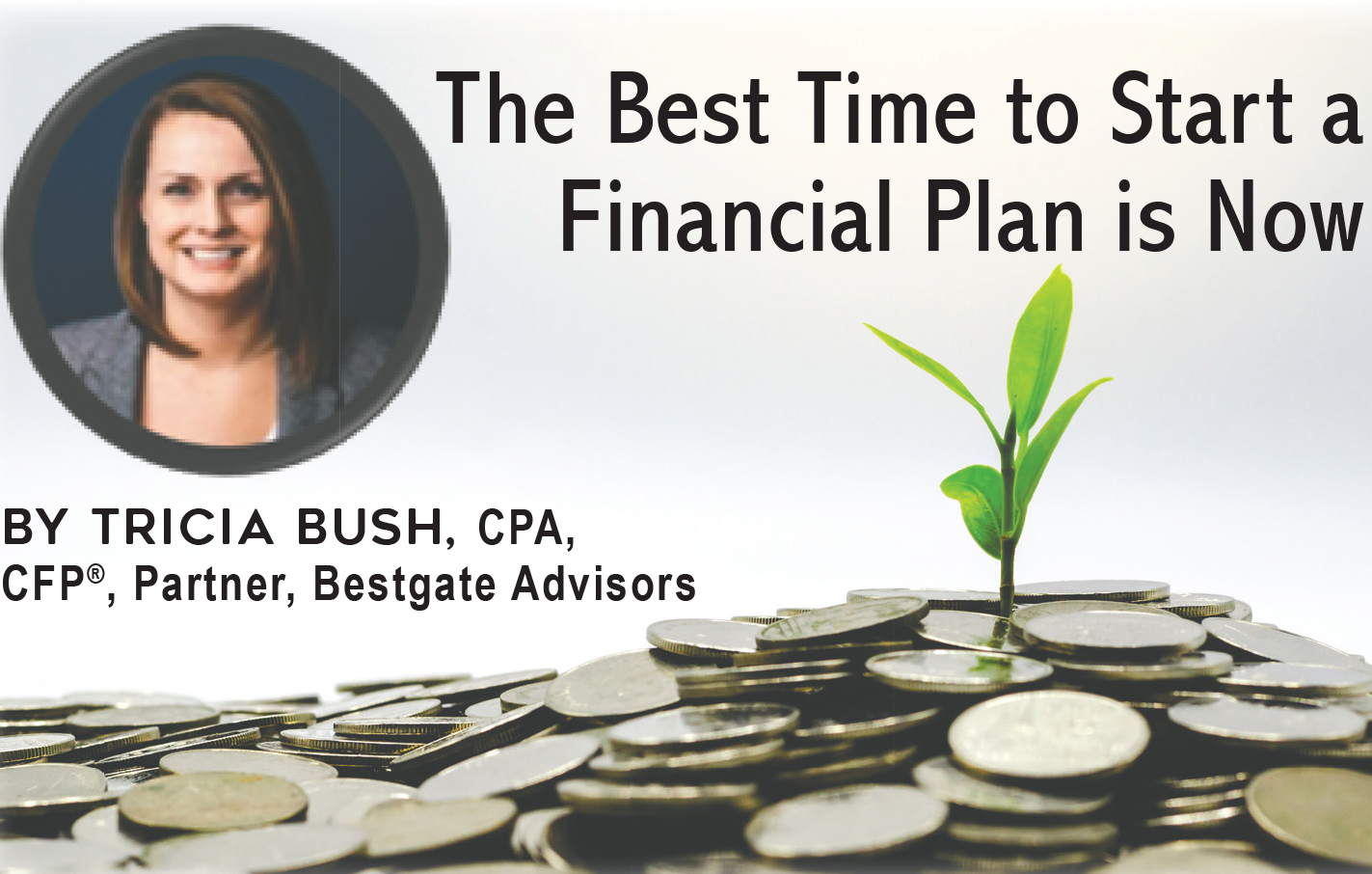
The Best Time to Start a Financial Plan is Now

by Tricia Bush, CPA, CFP®, Partner, Bestgate Advisors
Pay O f f Yo u r M o r t g a g e E a r ly o r I n v e s t ?
Maybe you’ve overheard co-workers debating or you were at the local diner or chatting with neighbors—about whether it’s smarter to pay off your mortgage quicker or invest your spare cash for better returns. It’s a question that can leave you scratching your head, wondering what’s best for your hard-earned dollars. Should you prioritize paying off your mortgage early or invest extra funds to earn higher potential returns? This decision isn’t just about numbers; it’s deeply personal and can vary significantly based on individual circumstances and financial philosophies.
The Case for Paying Off Your Mortgage Early
For some homeowners, the satisfaction of owning their home outright is powerful. Imagine the peace of mind that comes with knowing you no longer owe a monthly payment to the bank. This approach can be particularly appealing if you are conservative or nearing retirement.
Personal Finance Philosophy: Dave Ramsey, a well-known financial expert, advocates aggressively paying down debt, including mortgages, as a key step toward financial freedom. His philosophy emphasizes the psychological and financial benefits of being debt-free, which can provide stability and reduce financial stress.
Consider Maria and John, a couple in their early 50s, who have been diligently paying down their mortgage over the past two decades. With retirement on the horizon, they prioritize eliminating their housing costs to free up more of their retirement income for travel and hobbies. For them, the emotional satisfaction of owning their home outright outweighs the potential returns from investing.
Argument for Investing in a Higher Interest Rate Market
On the flip side, investing extra funds in the stock market or other higher-yield investments can potentially generate greater returns than the interest saved by paying off a low-interest mortgage early. This strategy appeals to those who have a higher risk tolerance and believe in the power of compound interest over time.
Investment Perspective: Financial advisors like Suze Orman often advocate for investing extra funds rather than paying off low-interest debt quickly. They argue that, historically, the stock market has provided average returns that outpace mortgage interest rates over the long term. This approach assumes disciplined investing and a diversified portfolio to reduce risk.
Take Tom and Sarah, a young couple in their 30s with a growing family. They recently refinanced their mortgage at a competitive rate and are considering their options with extra income. Tom, an avid investor, calculates that over the next 20 years, historical stock market returns could significantly outpace their mortgage interest. They plan to invest the difference while maintaining a comfortable emergency fund and saving for their children’s education.
Personalities and Financial Behavior
The decision between paying off a mortgage early and investing often hinges on personal financial behaviors and goals. It’s essential to honestly assess whether you are likely to invest the difference, or if there’s a risk of spending it on discretionary expenses.
Behavioral Finance Insight: Research shows that individuals who are disciplined savers and investors may benefit more from investing extra funds. Conversely, if you tend to spend windfalls or struggle with saving, paying off your mortgage early might provide more tangible benefits.
Consider Jack, who inherited a sum of money and initially planned to invest it but found himself splurging on a luxury vacation and home upgrades. Reflecting on his spending habits, he realizes that for him, the psychological benefit of being debt-free would have provided greater long-term security and peace of mind.
Conclusion: What’s Right for You?
Ultimately, the decision to pay off your mortgage early or invest extra funds depends on your unique financial situation, goals, and behavioral tendencies. There is no one-size-fits-all answer.
Here are some key considerations to guide your decision-making process:
- Interest Rates: Compare your mortgage interest rate with expected investment returns.
- Risk Tolerance: Assess your comfort level with investment risk and market volatility.
- Financial Goals: Consider your short-term and long-term financial objectives, such as retirement savings or funding education.
- Behavioral Factors: Reflect on your spending habits and financial discipline.
Before making a decision, consult with a trusted financial advisor who can provide personalized guidance based on your circumstances. Whether you prioritize the emotional satisfaction of owning your home outright or aim to maximize long-term investment returns, understanding your motivations and financial behaviors is crucial.
In the end, achieving financial security and peace of mind is about aligning your financial decisions with your values and goals. Whether you follow Dave Ramsey’s debt-free philosophy or opt for strategic investing, make sure your choice reflects what’s truly important to you and your family’s future.
Disclaimer: This article is for informational purposes only and should not be considered financial planning advice. Please consult with a certified financial advisor to discuss your specific situation and plan.
